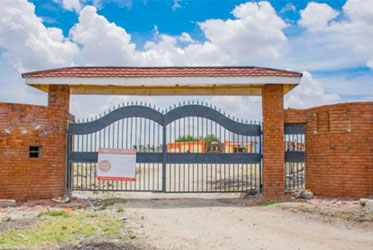Kenya’s real estate sector has experienced rapid growth in recent years, attracting both local and foreign investors. However, navigating the complexities of the country’s real estate market requires a firm grasp of the legal framework governing land and property. The Kenyan Constitution, promulgated in 2010, introduced significant reforms in land laws, shaping the landscape of real estate transactions in Kenya. The Constitution sought to rectify past wrongs, promote equitable access to land, and establish a transparent and accountable land administration system.
The principles of land policies
Article 60 states that: (a) Land in Kenya shall be held, used, and managed in a manner that is equitable, efficient, productive and sustainable, and in accordance with the following principles: (a) equitable access to land; (b) security of land rights; (c) sustainable and productive management of land resources; (d) transparent and cost-effective administration of land; (e) sound conservation and protection of ecologically sensitive areas; Constitution of Kenya, 2010 (f) elimination of gender discrimination in law, customs, and practices related to land and property in land; and (g) encouragement of communities to settle land disputes through recognized local community initiatives consistent with this Constitution.
Ownership of land
Article 61 says that all land in Kenya belongs to the people of Kenya collectively, as a nation, as communities, and as individuals. Land in Kenya can be classified as either public land, community land, or private land.
Public land is land that is held by the government in trust for the people of Kenya.
Private land consists of: (a) registered land held by any person under any freehold tenure; (b) land held by any person under leasehold tenure; and (c) any other land declared private land under an Act of Parliament.
Community land: Article 63 recognizes community land, which may be held by communities, including indigenous communities. The Constitution provides a framework for the registration and management of community land by the communities themselves.
It is also important to look at the different classifications of land, which include freehold and leasehold land.
a) Freehold: under this tenure system, an individual or entity holds absolute ownership rights over the land, subject to certain restrictions and regulations. This means descendants can succeed the owner for as long as the family lineage exists.
b) Leasehold: This system allows individuals or entities to acquire land for a specified period, often 99 years, subject to renewal.
Land Management: Article 62 (2) establishes the National Land Commission (NLC), responsible for managing public land on behalf of both national and county governments. The NLC plays a crucial role in ensuring transparent and accountable land management, which affects real estate projects located on public land.
Protection of Land Rights
Article 40 enshrines the right to property and emphasizes equitable access to land. It provides safeguards against unlawful evictions and guarantees the protection of the rights of individuals and communities regarding land. This constitutional protection is essential for real estate transactions to ensure the security of property rights.
Land Reform and Policies
Article 68 outlines the principles of land reform, calling for the establishment of land policies and the protection of land rights. These principles lay the groundwork for comprehensive land reforms and the development of policies that guide land management in Kenya. Real estate developers and investors should be aware of these policies and reforms, as they can impact land transactions.
Obligations with Respect to the Environment
Article 69 outlines how the state and Kenyans contribute to the conservation and protection of the environment. Every person must cooperate with state organs and other persons to protect and conserve the environment and ensure ecologically sustainable development and use of natural resources.
The Kenyan Constitution, with its comprehensive land provisions, forms the bedrock of real estate law in Kenya. It seeks to rectify historical injustices, promote equitable access to land, and establish a transparent and accountable land administration system. Consulting with legal experts well-versed in Kenyan land laws is advisable to navigate the intricate terrain of real estate transactions and ensure compliance with the law.
For more information, call/chat with us today!





